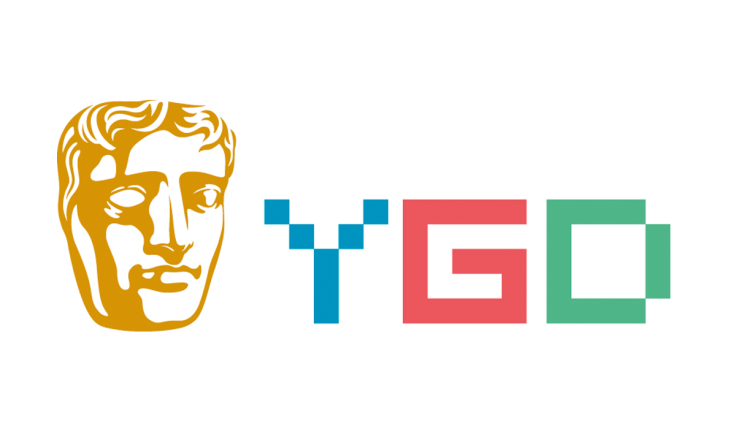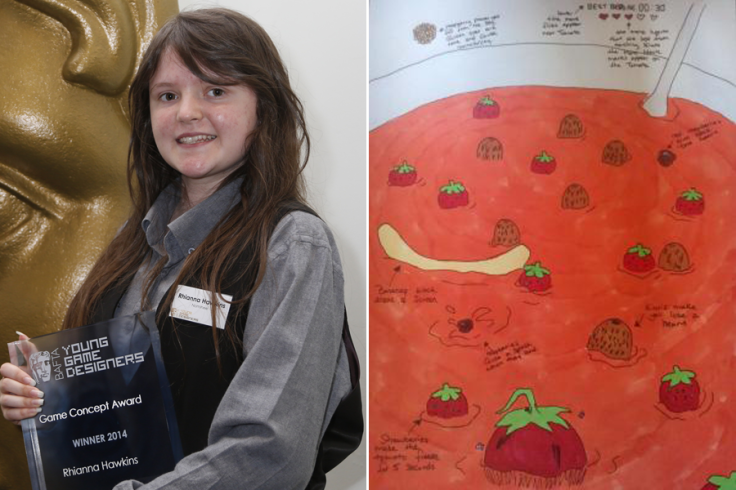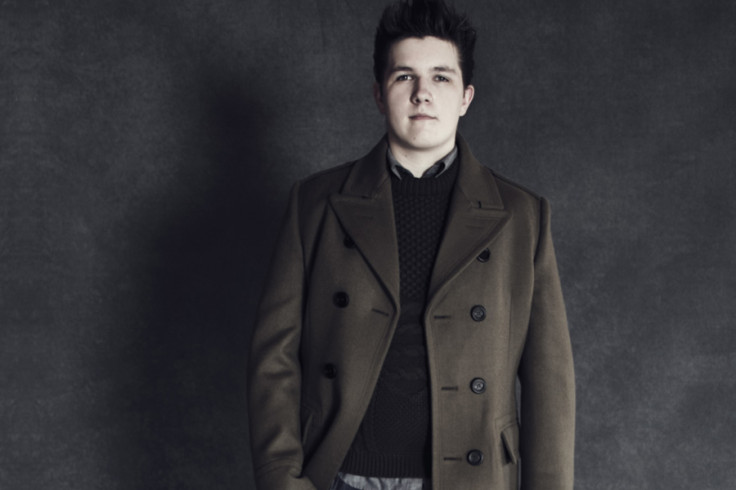Bafta Young Game Designers interview: 'Bafta has the power to change people's perceptions'
2014 and 2010 winners talk about entering the competition

This morning the British Academy of Film and Television Arts launched the 2015 Bafta Young Game Designers (YGD) Competition.
Open to 10-18-year-olds, entries can be submitted until Monday, 1 June in two categories: the YGD Game Concept Award and the YGD Game Making Award, given to games made using freely-available development software.
A host of judges will then decide the winners, who will win a prizes including the continued development of their game with professionals in the industry.
In anticipation of the competition opening, I sat down with Tim Hunter, Director of Learning and Events at Bafta, the competition's 2014 16-year-old winner Rhianna Hawkins, and Dan Pearce, who won the inaugural prize in 2010, to talk about young people entering the video game industry.
- How important is it to nurture young talent?
Tim: New talent is a massive priority for Bafta and we've been doing a lot more in recent years identifying newcomers and skilling up the existing next generation of talent
- What trends have you seen emerge in the competing entries since the awards began?
Tim: There's been an increase in young women taking part. We've been running the coding side for two years, in the first 7.5% were female and last year that was 15%, so that's quite a dramatic increase. In terms of the game concept side female participation has been fairly constant at around 30%, and that's something we're keen to increase.
- Young gamers have been heavily influenced by Minecraft, do you seen that influence in what they create?
Tim: I think Minecraft has made game design seem a lot more possible and attainable, which is why we introduced coding a couple of years back. I also think it breaks down the barriers between game players and game creators, and being involved in the mechanics of a game helps you understand what makes games work, what makes it good and how you can tell stories through them.

Bafta winner Rhianna Hawkins and a concept drawing of her game Tomatos Role. Bafta Something else that has been hugely influential on younger generations is YouTube. Rhianna, how have Minecraft and YouTube helped shape your design mentality?
Rhianna: I guess I want to make a game that people can talk about while they're playing it, because if you make a game that's action packed then you can't really get people to comment on it.
With games it's good that they can have a social side, because with something like film you can't talk while you're watching. So I think being able to talk while playing helps the social side and suits YouTube.
- How important is it to continue fighting misconceptions about gaming culture so younger generations – and particularly the young women you've mentioned – continue to show an interest in development?
Tim: One of our initial aims was to use the Bafta values and the trust people put in our brand to help people understand that you can make a career working in games. It's not just about sitting in a darkened room on your own, there's a whole community which is very active and creative who are contributing to the UK's culture and economy.
- And Rhianna and Dan, what has been your experience dealing with people who just don't understand the medium?
Rhianna: Whenever I tell people I want to make games I do get a lot of people telling me: 'You do realise that's just for boys right?' They only think there are shooting games – not the wide variety of games that are actually out there.
Dan: My mum asked me about a month after the Young Game Designer competition – when not a lot had happened – whether I should choose a different career. The sheer weight of Bafta completely changes that perception, and validates it as a career path. Bafta is one of the few institutions that has the power to change people's perceptions in a really big way without needing the sales numbers for Call of Duty to validate the industry, and instead focusing on the lot artistic merit of the medium.
- What convinced you to enter the competition?
Rhianna: I wanted to make games for so long and seeing there was something out there that I could enter and show that I want to make games.
Dan: I actually almost didn't [laughs], I did it to see what would happen. I heard about the competition at Eurogamer Expo 2010 and it was one of the few opportunities I found where I didn't have to code something to prove that I could design a game. While I do think that's incredibly useful, it's great that Bafta do provide an opportunity to experiment with design and get feedback purely on that, it really appealed to me.

2010 Bafta YGD winner Dan Pearce. Bafta Can you each tell me about your competition entries and how those games came about?
Rhianna: Well my game is basically: you're a tomato in a fruit salad bowl fighting for equality to be accepted as an actual fruit, so you have to move past all the other fruit to get to the spoon at the end and get people to notice you're a fruit. The idea came about because I heard about tomatoes being a fruit, then I saw a fruit salad and there was no tomato included in it.
Dan: Mine was called Hamster's Accidental World Domination, and it was kind of a study of platform game tropes, where everybody tells you you're this hero and you need to save the princess from this nefarious villain, but everything you do in the levels to try and save her ends up repeatedly messing up her plans to escape.
- What are the most important things you've learned about game design since winning the prize?
Rhianna: That it's actually possible to get into the industry. That it's not really distant, you don't have to get in by studying loads and you can just start making games.
Dan: That it's an expressive medium. If you're growing up reading a lot of games magazines there's lots of talk about what graphics are cool, what gameplay mechanics are cool, and someone like Bafta comes along and says no actually there's an artistic side too and a place to express yourself.
- What video games inspired you to create and want to be part of the development scene?
Rhianna: I like games that are different because there are so many games out there that it's interesting that you can do so many different things. There's the art side, the story, it's more than just a film and interactive as well.
Dan: Basically the same actually. They're so intricate and complicated with so many moving parts. All that is ridiculously deep and complicated. It's also a young medium, I mean we're yet to explore what we can do with all of those things yet, and that's tremendously exciting to work with.
- What tips would you give to someone entering the competition this year?
Tim: It's about building your network, being in the right place at the right time and developing your understanding of the industry, and we offer a lot of ways to do exactly that.
Rhianna: No matter what idea you have you should write it down and develop it, see where it goes, and then enter it even if you don't think it can win. I didn't think a game about a tomato would win but it can be quite surprising.
Dan: That's great advice, to iterate on your ideas. I'd also say keep it simple, don't clutter your idea with other peripheral stuff that isn't important to the core game. Keep it easy to understand, and just trust that whoever is judging can see where that idea can go.
© Copyright IBTimes 2025. All rights reserved.






















